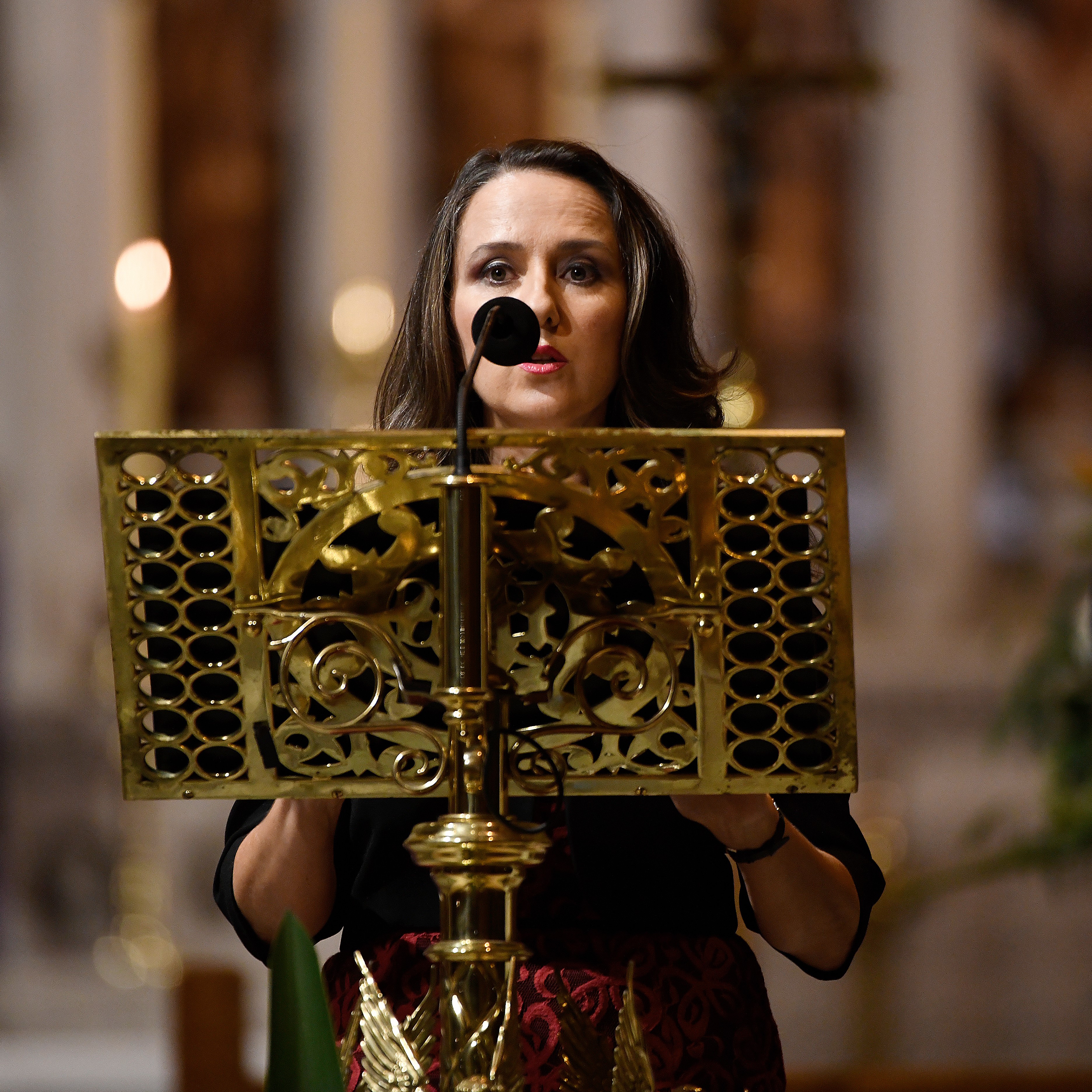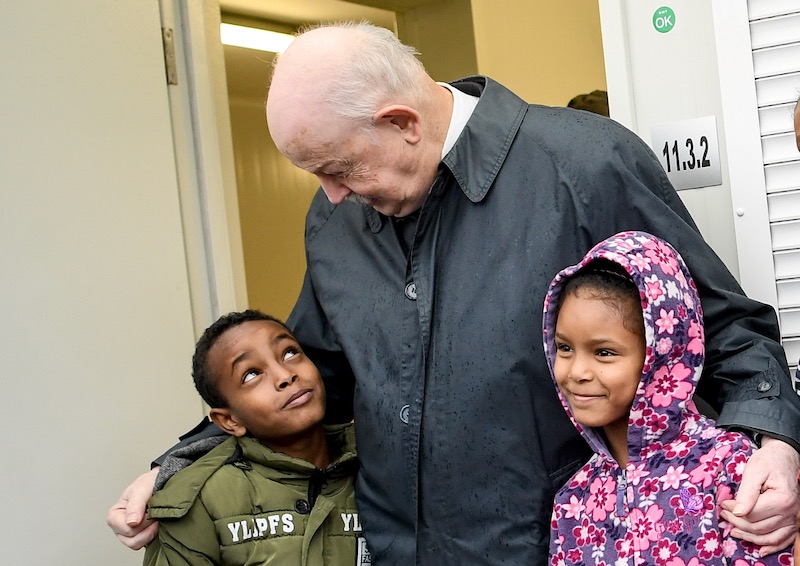I met Fra’ Giacomo Dalla Torre in the summer of 2018, soon after he had been elected the 80th Grand Master of the Order of Malta. The event was the annual St John’s day celebration held at the Knights’ Magistral Villa on Rome’s Avventine hill. The entrance to the villa is famous for its small keyhole, through which you can see the dome of St Peter’s at the end of an alley of cypress trees, and is only opened up on rare occasions. Home to the Grand Priory of Rome, and the Embassy of the Order of Malta to Italy, the villa has extraterritorial status, a reminder that the order is a sovereign entity with diplomatic relations with more than 100 states. It as a symbol of the rich tapestry of tradition associated with the 1,000-year order.
During his time as leader of the knights, however, Giacomo Dalla Torre del Tempio di Sanguinetto was not someone focussed on the trappings of the past. When he met he came over as understated, and without airs and graces, despite his office granting him the title of “His Most Eminent Highness”.
Dalla Torre had taken over leadership of the order in 2017 following Fra’ Matthew Festing’s resignation as Grand Master. Festing who had become embroiled in a dramatic public battle with the Vatican, which I have written about extensively, including here and here. Although ostensibly about the issue of distributing condoms, it became the first act of guerrilla warfare by traditionalists against Francis, with United States’ Cardinal Raymond Burke taking a prominent role.
As I report in my new book, “The Outsider”, it was a two-pronged attack designed to thwart the Francis pontificate. At the same time as the Pope met with Cardinal Burke to talk about alleged distribution of condoms he released his “dubia” challenge to Francis’ teaching on family life
“It is worth looking carefully at the events’ timing. Four days after the pope wrote his letter to Cardinal Burke about the order [and condoms issue], the American prelate released his list of dubia about Francis’s family life teaching, Amoris Laetitia. He and three other cardinals signed the dubia challenge, which was initially sent through to the pope privately,” I explain in the book.
“Bringing the order dispute and the dubia together, we can see a two-pronged attack designed to frustrate Francis’s pontificate. On the one hand, the cardinal was testing the pope’s adherence to Church teaching on contraception, and on the other calling into question his teaching authority on marriage, divorce, and communion.”
Born in Rome, Dalla Torre’s family had a long association with the Holy See and his grandfather was editor of the Vatican’s “L’Osservatore Romano” newspaper. The notion of the Knights becoming embroiled in a battle with the Pope would have been anathema to him, and he quickly healed the rift between the order and the Vatican, and developed a good working relationship with Pope Francis.
While rooted in the tradition of the Order of Malta, Dalla Torre was not a traditionalist whereas Festing was described as an “out and out traditionalist, in doctrinal and liturgical terms.”
Dalla Torre indicated early on that he was moving away from the Festing-era when, during his first meeting with Pope Francis wore a suit, rather than the red military uniform of the order which his predecessor always wore during papal audiences.
The late Grand Master took over with a mandate to reform the Knights’ constitution, with the Pope and the Vatican wanting to see a renewal based on “consolidating and prolonging” the order's “distinguished heritage of faith and of spirituality.”
The knights are a religious order with a spiritual mission, dispensing over £1 billion in aid a year, with a staff of around 42,000 medical personnel and another 80,000 volunteers.
But leadership positions among the 13,500 knights and dames are concentrated among several dozen professed knights who take religious vows – similar to monks or friars – of poverty, chastity and obedience. They are also officially required to show noble lineage. It is from their ranks that the Grand Master is chosen.
One of the reforms requested by the Holy See is focussed on the professed ensuring they follow the Church’s norms on religious life, particularly on the vow of poverty.
On 2 May 2019, following a general chapter meeting of the Knights, Fra’ Giacomo said that “preparation and formation” of the professed was “not adequate.” He planned to introduce a two-year long novitiate which would include theological formation, spiritual formation, time spent in community life and work with the poor.
The vow of poverty, he added, needed to be followed.
“In the current Code we already have on paper a solemn and full vow of poverty. However, Canon Law does not easily allow the granting of simple dispensations from this vow as has been permitted in the past,” he said. “Even less acceptable, will be to continue with a lax implementation of this essential element of the religious condition.”
Dalla Torre was determined to push through the reforms telling the knights “we cannot and must not fail”. This earned him some enemies, and traditionalists were furious by his ban on all celebrations of the Old Rite inside the order.
Among the rank and file members, Dalla Torre was popular and described has having a “profound dedication to charitable work” of the knights who follow the motto: “Tuitio Fidei et Obsequium Pauperum” (“Nurturing, witnessing, and protecting the faith; and serving the poor and the sick”)
Following the Grand Master’s death, Grand Commander Fra’ Ruy Gonçalo do Valle Peixoto de Villas Boas, has taken over as Lieutenant ad interim and will lead the order until a new leader is elected.
It is unclear when that will be given the Covid-19 pandemic. Grand Masters are elected in a conclave-style election with knights travelling to Rome from all over the world to cast their votes. Given travel restrictions, and the age profile of senior members of the order who are especially vulnerable should they contract coronavirus, an election could be many months away.
In the meantime, the new Lieutenant has the powers to lead the order, and continue work that their now-deceased Grand Master started.



 Loading ...
Loading ...
What do you think?
You can post as a subscriber user ...
User comments (0)